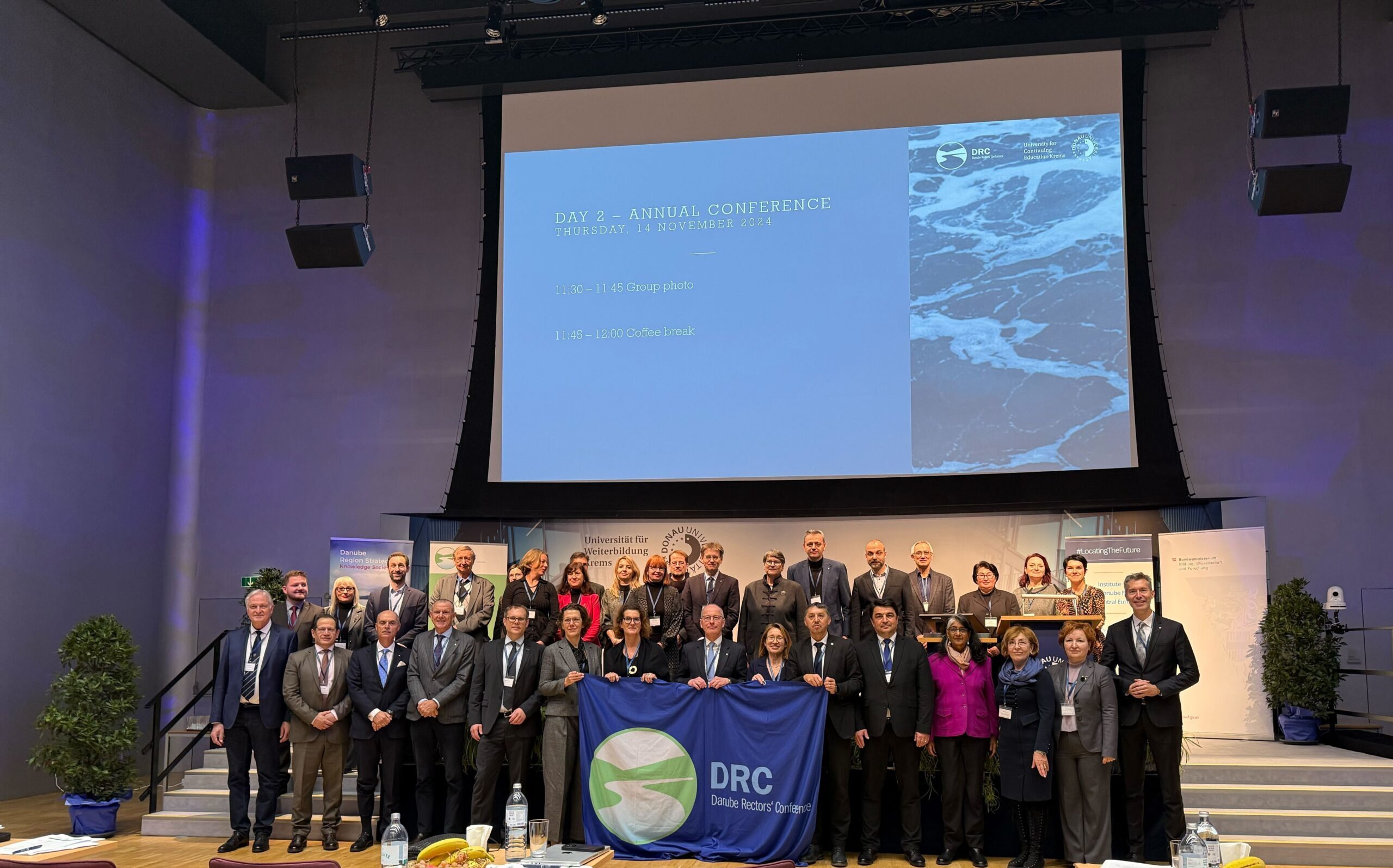The Danube Rectors’ Conference (DRC) 2024 took place from 13 to 15 November 2024 at the University for Continuing Education Krems (UWK), bringing together university leaders, policymakers, and experts from across the Danube Region. Under the theme, “University Leadership in Times of Uncertainty: Governing Universities in the Danube Region Through Multiple Crises”, the conference addressed the topic of how universities can navigate global and regional challenges, including political, economic, environmental, and health-related crises. This gathering emphasised the critical role of leadership, resilience, and strategic decision-making for higher education institutions during complex times.
Opening remarks from DRC President Friedrich Faulhammer, alongside the Mayor of Krems, Peter Molnar, and Elmar Pichl from Austria’s Ministry of Education, underscored the collective commitment to preparing universities to address multiple intersecting crises.
The conference examined the impact of political, economic, environmental, and health-related crises on universities across the Danube Region, providing a platform for strategic discussions and solution sharing. It aimed to analyse the multifaceted crises affecting the Danube Region’s universities and focused on developing innovative and adaptive strategies. The event encouraged cross-sector collaboration and exchange by integrating an interdisciplinary approach that combines scientific disciplines with societal perspectives, aiming to uncover robust solutions that prepare universities for future uncertainties, positioning them as impactful contributors to societal resilience.
Gerhard Eisl, representing the Austrian EUSDR Presidency, underscored the Presidency’s commitment to fostering cooperative conditions for stakeholders, particularly in higher education. Mr Eisl emphasised the continuity of such efforts, tracing ongoing support from the Slovenian to the Austrian Presidency, and expressed hopes for the upcoming Bosnian and Herzegovinian Presidency to further strengthen cooperation within the Danube Region Strategy. This regional commitment highlights the shared vision of enabling universities to thrive through transnational partnerships and aligned policies.
Viktor Nedović, one of the Priority Area Coordinators for the EUSDR Knowledge Society, highlighted the importance of involving a broad spectrum of stakeholders, including funding programs, the Danube Youth Council, the European Commission, and universities. He stressed the importance of combining scientific expertise with societal needs, enhancing the impact of collaborative efforts. The EUSDR Priority Area 7 – Knowledge Society representative also emphasised the importance of the Danube Strategy Flagships as essential tools for promoting cross-border cooperation in the region.
This year’s sessions focused on best university governance and leadership practices, especially in teaching, research, and staff development. As participants shared strategies and insights, the conference was expected to contribute significantly to developing more resilient and adaptable governance structures in higher education. In doing so, the Rectors’ Conference supports aligning universities’ roles in societal development, ensuring they are prepared to address current and future challenges.
The conference provided the perfect context for the prestigious Danubius Awards Ceremony on 14 November, which celebrated outstanding contributions to science, policy, and cross-regional cooperation. This event reinforced the commitment to building a resilient, future-ready higher education landscape in the Danube Region.
For more information about the Danube Rectors’ Conference 2024, visit the link.





